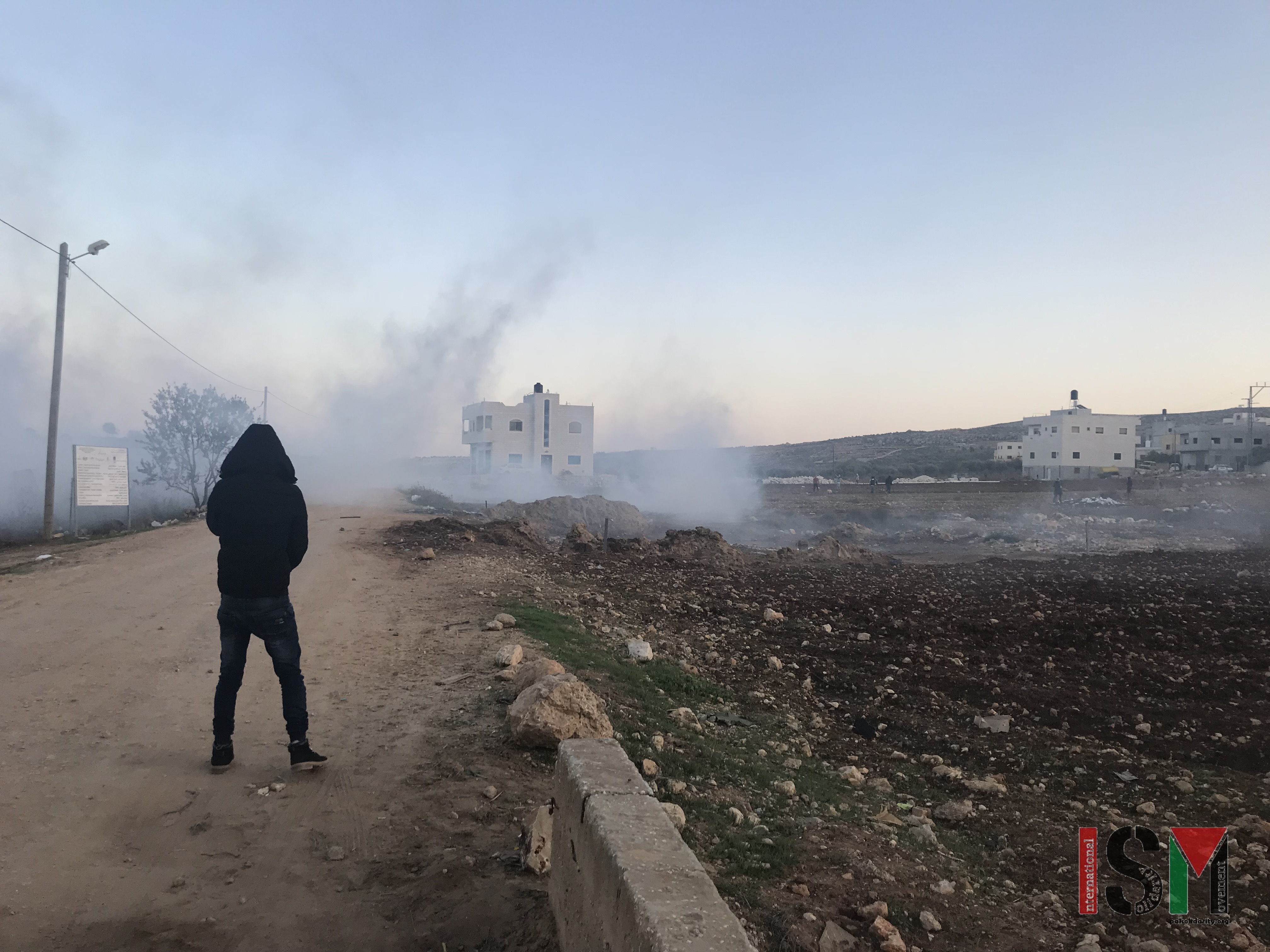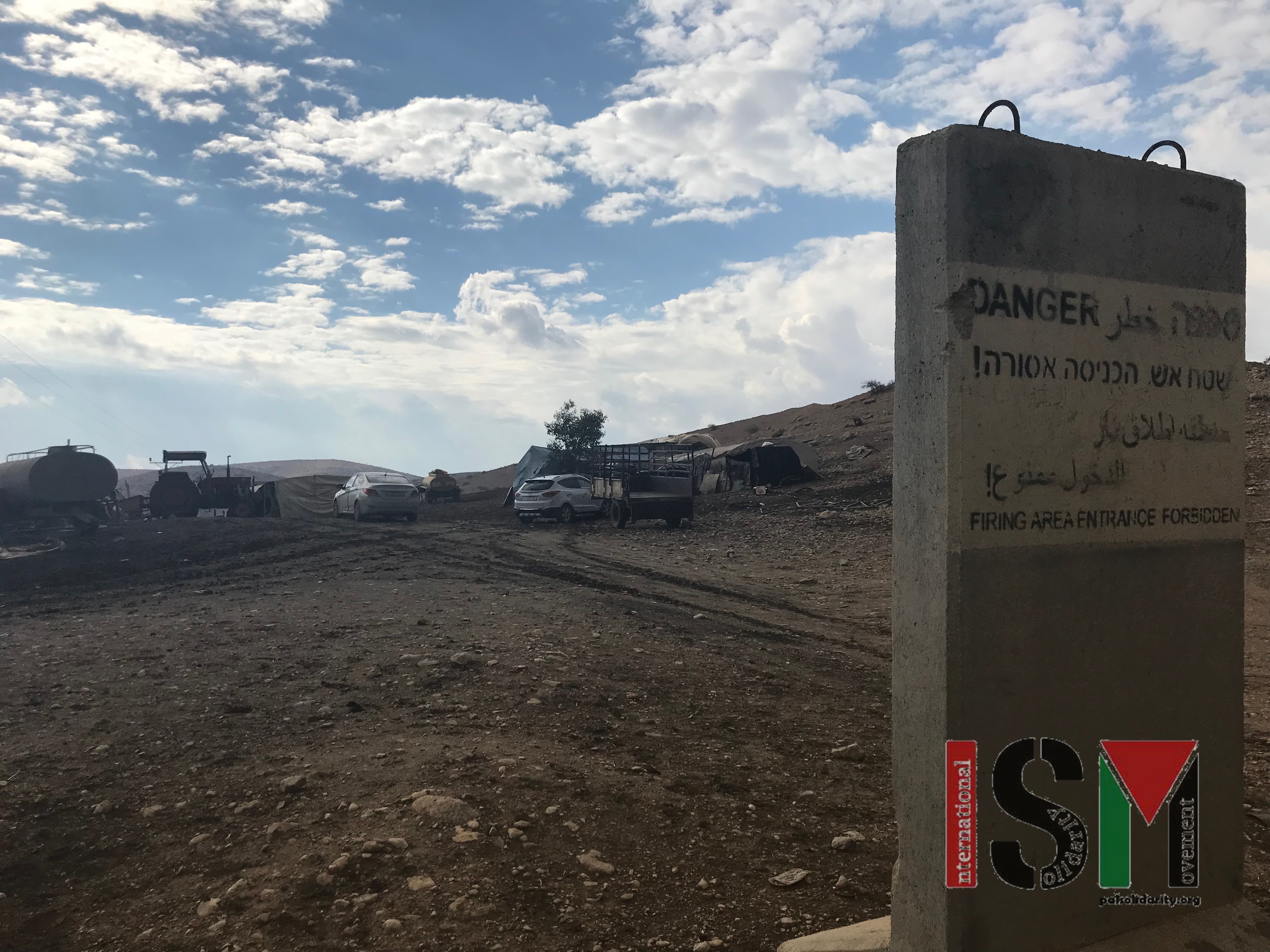Tag: Israeli Military
-
Ethnical cleansing in the Jordan Valley
26th November 2017 | International Solidarity Movement, Team Nablus | Jordan Valley Solidarity | Jordan Valley, Occupied Palestine Israeli forces have sent out demolition orders to two villages in the northern Jordan Valley, where they plan to demolish the homes of around 300 Palestinians. This is part of the Israeli military’s ongoing efforts ethnically cleanse…
-
A call for solidarity from Kufr Aqab
24st November 2017 | International Solidarity Movement, Nablus team | Nablus, Occupied Palestine Six residential buildings in the Kufr Aqab neighbourhood in Jerusalem are currently facing demolition orders by Israeli authorities. The neighbourhood is the northernmost part of Jerusalem but is separated from the rest of Jerusalem by the Apartheid Wall. Most of the residents…



